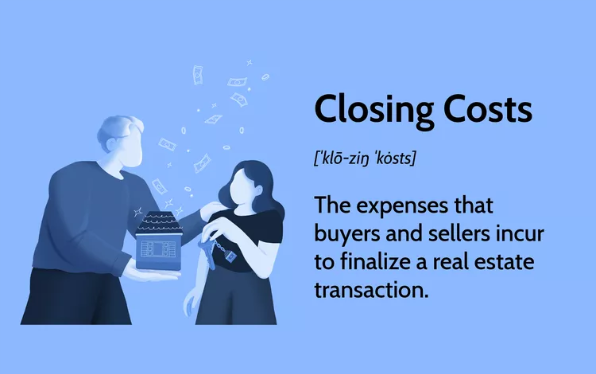Understanding Closing Costs and How to Prepare for Them
Buying a home is a major financial milestone and while you may be prepared for the down payment, many buyers are caught off guard by another major expense: closing costs.
These are the fees and expenses you’ll pay to finalize your mortgage and officially become a homeowner. In this post, we’ll break down what closing costs include, how much to expect, and smart tips to help you prepare so you’re not blindsided on closing day.
What Are Closing Costs?
Closing costs are the various fees and charges you pay when you finalize a real estate transaction. These costs are separate from your down payment and can vary based on your loan type, lender, location, and property value.
Closing costs typically cover:
-
Lender fees
-
Title and escrow charges
-
Appraisal and inspection fees
-
Prepaid taxes and insurance
-
Legal and administrative costs
Both buyers and sellers have closing costs, but buyers usually pay the larger share.
💵 How Much Are Closing Costs?
On average, buyers should budget for 2% to 5% of the home’s purchase price.
| Home Price | Estimated Closing Costs (2–5%) |
|---|---|
| $200,000 | $4,000 – $10,000 |
| $300,000 | $6,000 – $15,000 |
| $500,000 | $10,000 – $25,000 |
The actual amount depends on your location, loan terms, and the professionals you work with.
🧩 Common Closing Cost Components
Here’s a breakdown of typical buyer closing costs:
1. Loan Origination Fee
Charged by your lender for processing the loan — usually 0.5% to 1% of the loan amount.
2. Appraisal Fee
Lenders require a property appraisal to confirm its value. Expect to pay $300–$600.
3. Home Inspection Fee
A general home inspection ensures the property is structurally sound — typically $300–$500.
4. Credit Report Fee
Lenders will pull your credit to determine loan eligibility. This fee is often $30–$50.
5. Title Search & Title Insurance
Ensures the property has a clear title with no legal claims. These can total $500–$1,500+.
6. Escrow Fees
Paid to a third party managing the transaction. Escrow fees vary by state and transaction type.
7. Prepaid Property Taxes
You may need to prepay property taxes for the next 3–6 months.
8. Homeowner’s Insurance
Lenders require proof of insurance before closing. The annual premium (often $500–$1,500) is paid upfront.
9. Private Mortgage Insurance (PMI)
If your down payment is less than 20%, your lender may require PMI — with some premiums due at closing.
10. Recording Fees and Transfer Taxes
These are government fees to officially record the deed and transfer ownership — varies by location.
📋 Tips to Prepare for Closing Costs
✅ 1. Budget Early
Use a closing cost calculator or ask your lender for a Loan Estimate (LE) early in the process so you’re not surprised.
✅ 2. Ask for a Seller Concession
In some markets, you may negotiate with the seller to cover part of your closing costs.
✅ 3. Compare Lender Fees
Not all lenders charge the same fees. Shop around and ask for a Loan Estimate from multiple lenders to compare.
✅ 4. Look Into Assistance Programs
Many states offer first-time buyer grants or closing cost assistance programs. Check local housing authority websites.
✅ 5. Review the Closing Disclosure (CD)
Three days before closing, you’ll receive a final Closing Disclosure outlining all the costs. Review it carefully and ask questions if something looks off.
🧠 Final Thoughts
Closing costs can add up quickly, but with a little planning, you can be ready for them. Understanding what’s included, how much to expect, and how to reduce or offset them can help you move through the final steps of home buying with confidence.


